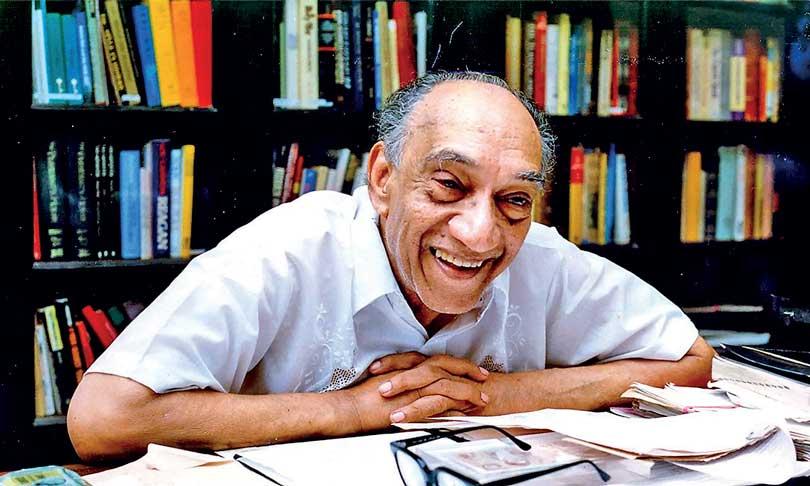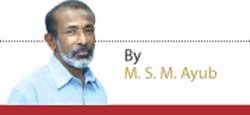Reply To:
Name - Reply Comment

The Executive Presidency in this country is attributable to an idea conceived in the mind of J.R. Jayewardene, apparently first expressed at a meeting of the Ceylon Association for the Advancement of Science in 1966
The Elections Commission is empowered to conduct the General Election, unless the President prematurely dissolves the Parliament, only between June and July 2025
 In spite of allegations by the Opposition parties about the government’s repeated efforts to amend the election laws including the appointment of a ten-member commission by President Ranil Wickremesinghe last month, indeed there is a genuine need for electoral reforms.
In spite of allegations by the Opposition parties about the government’s repeated efforts to amend the election laws including the appointment of a ten-member commission by President Ranil Wickremesinghe last month, indeed there is a genuine need for electoral reforms.
What is lacking in the government’s efforts is consistency which provokes suspicion among the people.
The need for electoral reforms arises out of provisions in laws including in the Constitution about elections – national as well as local – which have been proven to lead to corruption and situations against a level playing field during elections.
All remedial measures that have been taken to address the flaws in laws thus far have created new sets of flaws, primarily owing to chicanery and lack of political will to eradicate corruption in politics, on the part of the leaders of the governments of the day.
For instance, the Constitution states “President may, at any time after the expiration of four years from the commencement of his first term of office, by Proclamation, declare his intention of appealing to the people for a mandate to hold office, by election, for a further term.”
The very provision was brought in by former President J.R. Jayewardene through the 3rd Amendment to the Second Republican Constitution in August 1982 in order for him to contest the Presidential election in the absence of his main rival, Ms Sirima Bandaranaike, who had then been stripped of her civic rights for seven years by him.
This provision was then used by several other Presidents as well – even those who opposed that Amendment - to hold Presidential elections at a time when they thought favourable to them. Thus Chandrika Kumaratunga and Mahinda Rajapaksa called Presidential elections in 1999 and 2010 respectively. We do not have strictly fixed time frames for elections.
Provincial Councils could be dissolved by the government in power, through the respective governors to hold elections for them at a time they wish.
Thus, seven Provincial Councils outside the Northern and Eastern Provinces were dissolved by the governors in 1993 before them standing dissolved after their terms ended, as the then United National Party (UNP) government under President D.B. Wijetunge wanted to hold elections for them early.
Local Government elections can also be postponed at any time as the current government did last year, despite the law stipulating a term for them with a specific time frame. And the current stalemate concerning LG polls points to how toothless the Election Commission is before the powers of the Executive.
The government refused to provide funds for the Commission to hold elections on March 9 as it had declared, despite the Supreme Court having ordered not to withhold funds. Now those elections are out of sight.
President Wickremesinghe during the convention of his party, the UNP on October 21 announced that the Presidential and Parliamentary elections would be held next year followed by the Provincial elections in early 2025. The next Presidential election as per the Constitution has to be conducted between September 18 and October 18 next year, since President Gotabaya Rajapaksa assumed office on November 18, 2019.
However, the Elections Commission is empowered to conduct the General Election, unless the President prematurely dissolves the Parliament, only between June and July 2025. And the dissolution of the House could only be done four years and six months after the first session of the current Parliament, meaning only in February 2025. Parliament could be dissolved by a resolution passed by itself, but that too with two-thirds of majority votes being cast in favour of the resolution.
Therefore, it is not clear how the President predicted the General Election also being held next year. The government can do so only by amending the Constitution, but again with a special majority vote. We see throughout recent history governments in power, instead of the Elections Commission, deciding the time for elections, despite the law providing for the Commission to hold elections at specific intervals spelt out by the law.
This is unfair, unethical and against democracy. We need strictly fixed time frames for elections like those in the US which cannot be overridden by the Executive or the government.